Last Updated on November 20, 2025 by Olasunkanmi Olajide
… As FUNAAB Holds 107th Inaugural Lecture
By Olasunkanmi Olajide, Emeka Oluka & Joy Adeyiga
A Professor of Civil Engineering Structures, Department of Civil Engineering, College of Engineering (COLENG), at the Federal University of Agriculture, Abeokuta (FUNAAB), Prof. Joseph Akinyele, on November 19, 2025, called on the Federal Government to enact urgent legislation mandating the recycling of non-biodegradable waste for construction purposes, describing it as a crucial step towards environmental protection and sustainable national development.
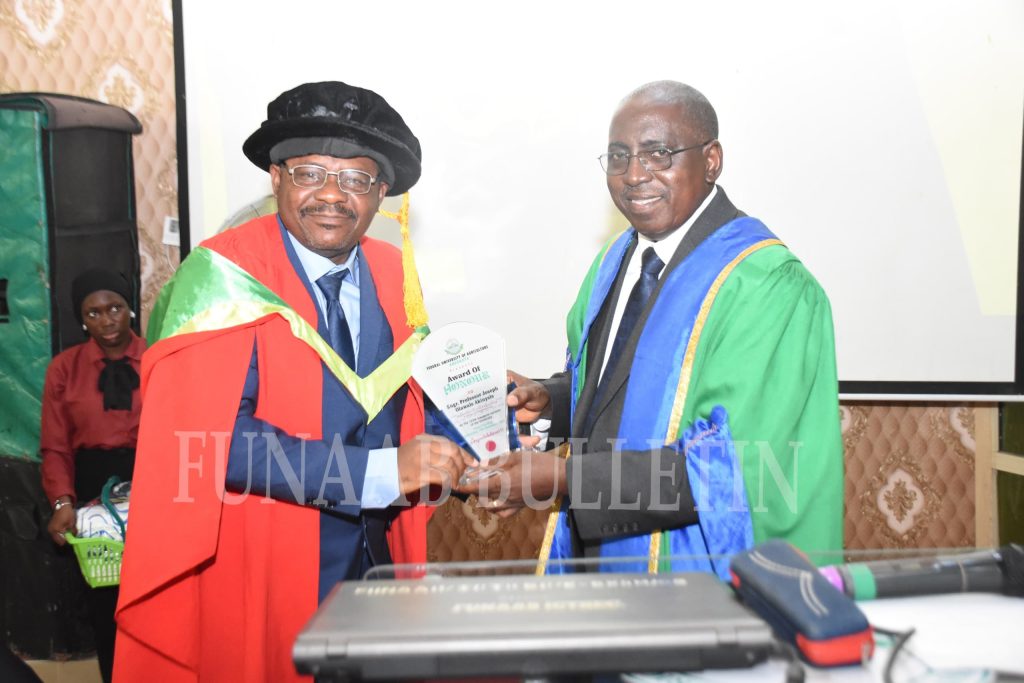
Delivering the University’s 107th Inaugural Lecture titled “From Waste to Strength: The Power of Geopolymer, Rubberized, and Plastic Waste Concretes for a Cleaner Environment,” Prof. Akinyele urged cement manufacturers, universities, and research institutions to strengthen collaborations that would fast-track the adoption of eco-friendly construction materials across the country.
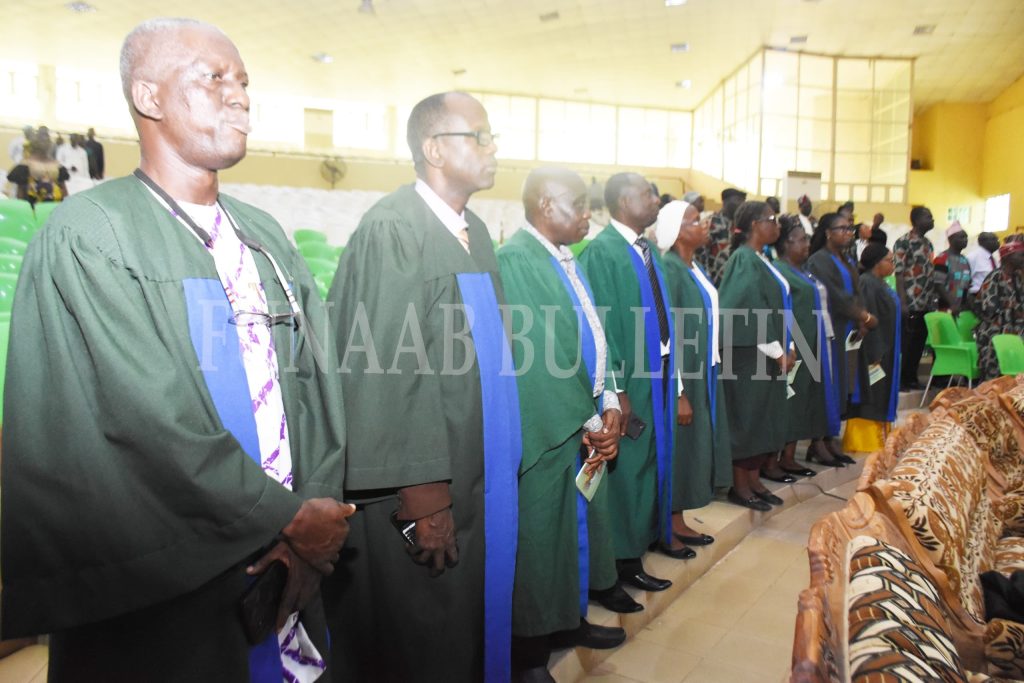
He revealed that his research has shown that geopolymer concrete, an alternative to traditional Portland cement offers superior compressive strength and greater resistance to sulphate and chloride ions, the major causes of deterioration in cement-based reinforced structures. Beyond performance, he noted, geopolymer materials significantly reduce environmental pollution.
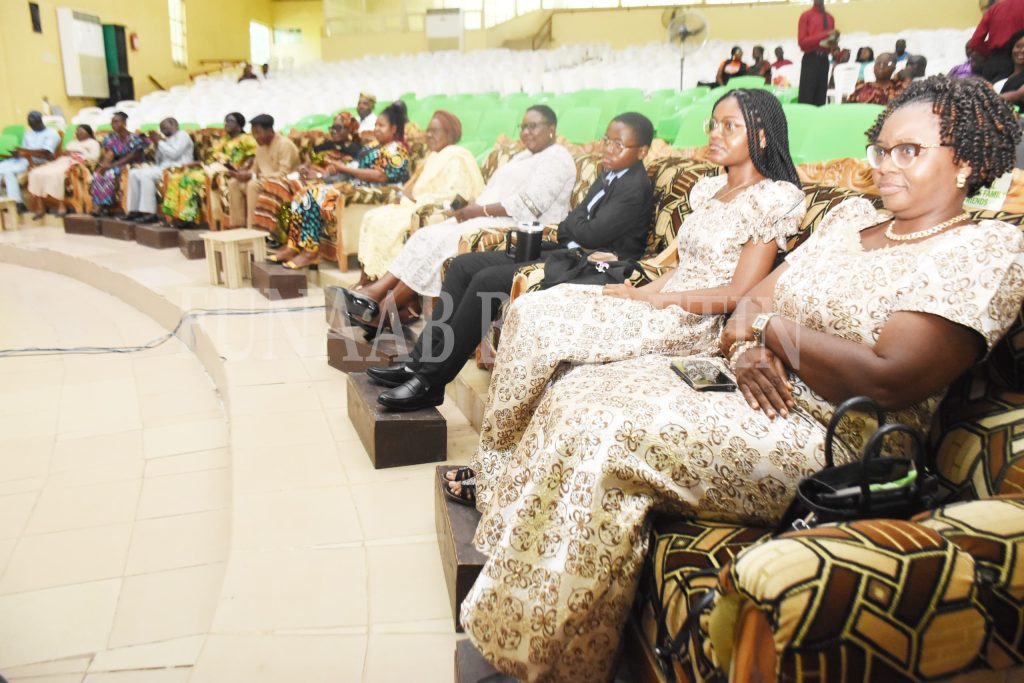
Highlighting the potential of waste conversion, the don explained how waste tyres, PET plastics, and glass can replace portions of sand, gravel, and clay in construction materials. According to him, plastic waste can safely substitute up to 20% of aggregate in concrete, while rubber can substitute up to 16%. Glass and plastic waste may be incorporated into burnt bricks at recommended limits of 5% and 3%, respectively.
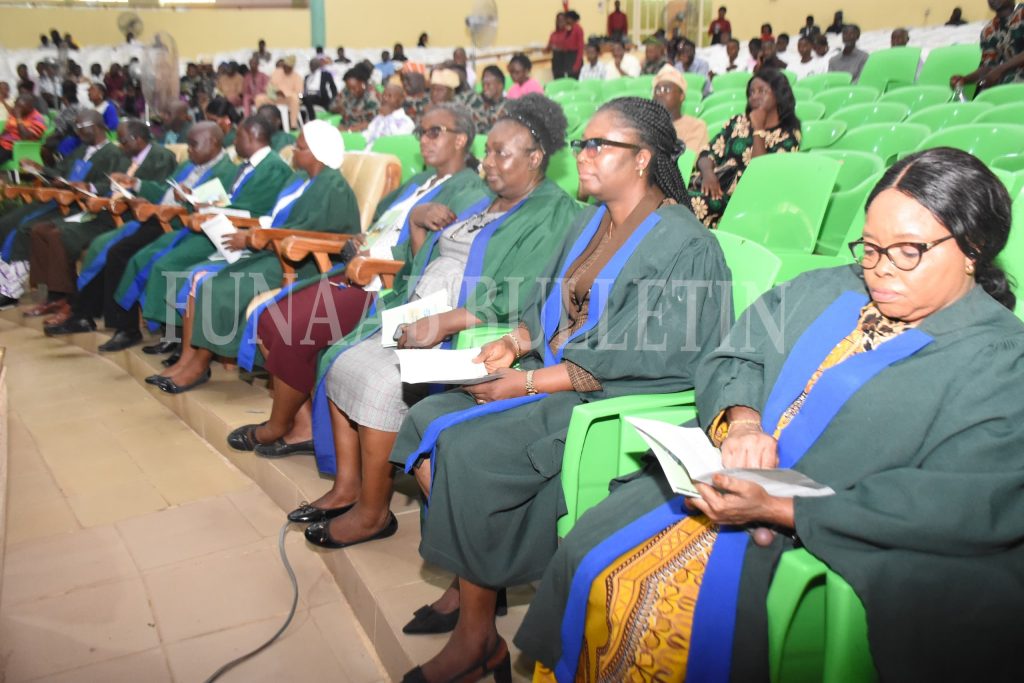
Prof. Akinyele insisted that Nigeria must move towards policies that enforce the recycling of non-biodegradable waste in construction, linking the call to the nation’s commitment to Sustainable Development Goal 13, Climate Action. He also advocated adopting metakaolin as a 20% substitute for cement to reduce energy consumption and CO₂ emissions associated with clinker production.
He appealed to government and industry stakeholders to increase funding for scientific research, upgrade laboratories, and support the establishment of a world-class Central Engineering Workshop at FUNAAB to boost innovation in the construction industry.
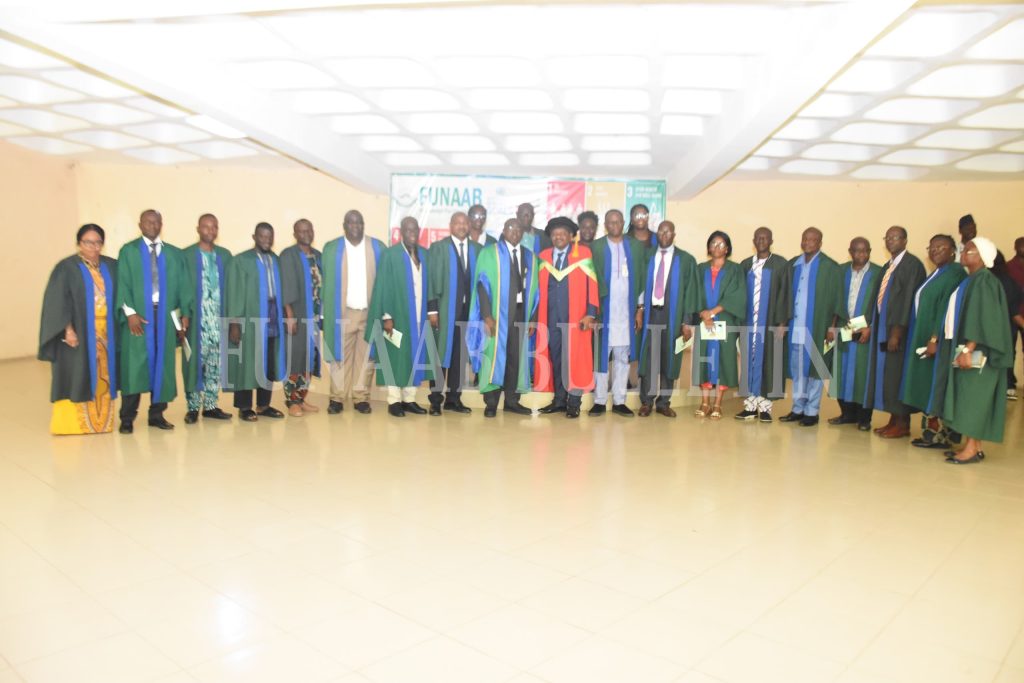
Speaking at the lecture, the Vice-Chancellor, Prof. Babatunde Kehinde, commended Prof. Akinyele’s outstanding contributions to engineering research and education, citing his over 60 publications and involvement in groundbreaking infrastructural projects.
The event underscored the urgent need for sustainable construction solutions as Nigeria confronts growing environmental challenges and the realities of climate change.
